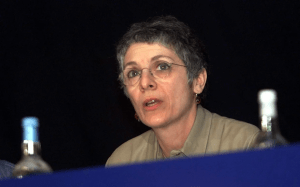Saber Blidi: The Algerian govt’s game of Russian roulette

The new power structure, whose main pillars include the military establishment and civil society, is in the process of reversing political traditions. But this might come with a very high price
Until the last government of the late President Abdelaziz Bouteflika, which was led by currently-imprisoned former prime minister Ahmed Ouyahia, the prevailing tradition was to hold a periodical dialogue, albeit formally, with the state’s social partners before taking any social measures. The purpose at that time was to contain the demands made by the working class. The current authorities are however trying to bypass these intermediate bodies and unilaterally decide on various social and professional measures.
Since his inauguration at El Mouradia Palace at the end of 2019, President Abdelmadjid Tebboune has not met with the social partners which compose the Social Front. Had he done so, it would have been an opportunity to consult about the social situation in the country, especially considering the difficult and complex circumstances of recent years including the bouts of political instability, the economic crisis and the repercussions of the COVID-19 pandemic.
It seems that the new power structure, whose main pillars include the military establishment and civil society, is in the process of reversing political traditions. It appears that a new landscape is being designed by the authorities without leaving any room for the political class and the trade unions, even if they do not actually include many dissonant voices.
READ Iraqi immigrant accused of murder of Algerian blogger in Germany
Since his inauguration, Tebboune’s narrative has been focused on social issues, by announcing salary increases and unemployment bonuses and improving retirement pensions. These decisions used to be taken as part of periodical dialogues between the government and its social partners. The new approach shows the authorities intent on ridding themselves of the time-honoured political and social legacy, which meant partners were sharing in the top leader’s powers and prerogatives.
The authorities have in a way succeeded so far in sidelining the political class, including what is known as loyalist parties. The latter no longer play the traditional supporting role for the authorities despite the challenges that the country faces. The government itself is content that they are just filling the void in elected institutions. By eschewing what were known as the “trilateral” meetings, which brought together the government, unions and business organisations, the government has marginalised yet another front, but apparently not for long.
The reaction to the draft law on the right to strike and trade union activity has confirmed that there is still fire under the ashes despite what the authorities might think. Trade unionists and politicians raised their voices loudly to break the ambient silence and defend the last bastions of democracy and stand for rights acquired since the early nineties of the last century. The government may have anticipated this opposition by postponing the discussion of the bill.
READ As Morocco’s relations with Paris tumble, Algeria’s climb
It seems that the current administration, is seeking to sideline the traditional fronts, by trying to eliminate the last likely causes for social and political headaches by expanding its ability to ban strikes and deprive trade unions of their activism or political interests. However, it does not want to risk provoking the eruption of a seemingly dormant volcano. It knows it can contain the political parties but cannot contain the social front, which enjoys wide currents of sympathy among middle and lower classes, regardless of how relevant the government’s social proposals might be.
Loud political voices have remained isolated in comparison to the popular momentum that the unions were able to mobilise. It all however constituted a warning to the government over the consequences of continuing to sideline the key components of any democratic system, such as the political opposition, trade unions, associations, and the media.
Therefore, allowing the draft law on the right to strike and trade union activity, to be referred for further consultation with social partners, appears to be a wise move. It shows awareness of the dangers inherent in the government’s approach and the possible repercussions it might have on the social front. Middle and lower classes can trigger revolutions that overthrow the most powerful of political regimes, even at the height of the isolation of the traditional left.
It is true that the authorities inherited a situation in which financial graft combined with political corruption were widespread. This was reflected in the performance of government bodies and state institutions in general. But this cannot be an excuse to create a climate where even loyalist parties suffocate. It would have been better to establish real mechanisms that could create a healthier environment and allow for the emergence of a political class, inclusive of trade unions, media and civil society, which, whatever their positions and impetus, could represent a real addition to the state.
The views expressed here do not necessarily reflect those of Maghrebi.org but we do nonetheless encourage freedom of expression and even the ‘right to reply’. If you want to contribute to the Opinion section, feel free to send your article to opinion@maghrebi.org with a detailed bio including a twitter handle at the end of the piece.
Want to chase the pulse of North Africa?
Subscribe to receive our FREE weekly PDF magazine












